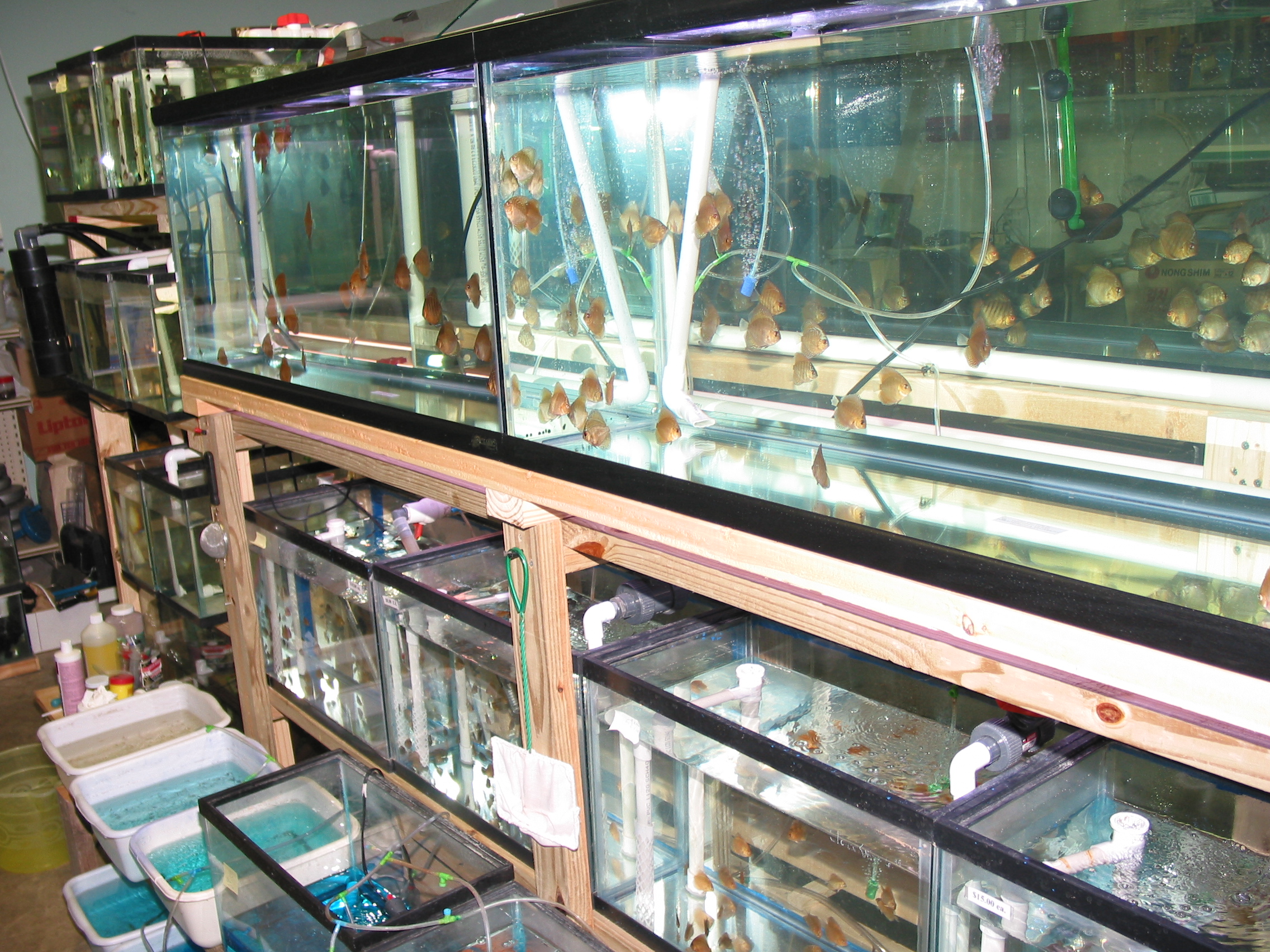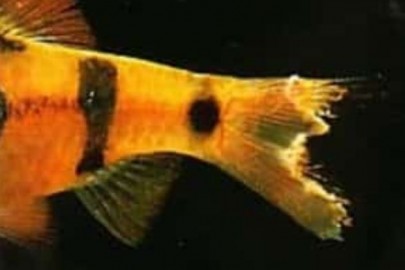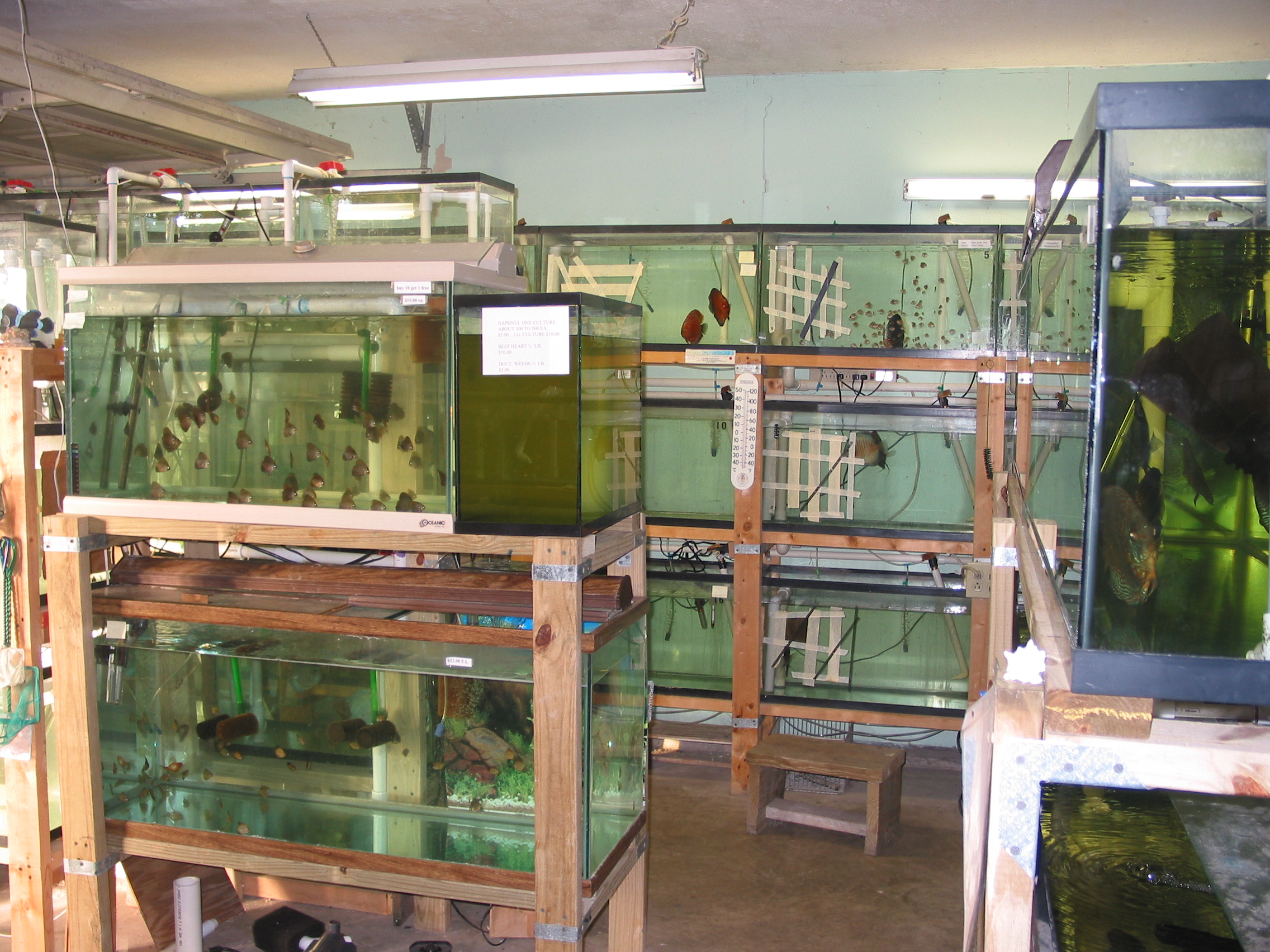

Moreover, consider using deionized water to create the best condition for your discus fish.Ĭhanging water is essential to remove waste buildup. You can use an aquarium heater to maintain the ideal water temperature. The water pH level should be between 6 and 7. But the ideal temperature for wild discus is 900F (320C). The aquarium water temperature should be 820F to 860F (280C to 300C). Water hardness level should be between 1 and 4 dH. Avoid putting discus with too many other fish as they may lose out on nutrition.ĭiscus can thrive in soft and warm water. If you keep discus with fast eaters like barbs or cardinal tetras, your discus fish will probably starve.Įven suitable mates like German blue rams and clown loaches will be too fast for the fish. Some suitable aquarium mates for discus that can live in warm water include:Īn important to consider when selecting fish to keep with discus is that discus is slow eaters. Most fish species cannot tolerate the warm water conditions that are needed for the discus to thrive. There are only a few fish that are compatible with discus. Most aquarists don’t consider mixing discus with too many other types of fish. They are free-swimming fish that occasionally require some cover, such as plants or large driftwood inside the tank. But the fish will rise to the top of descent to the bottom to forage. Larger discus fish should be kept separately from the smaller ones to ensure that they live in harmony.ĭiscus spend most of the time in the middle level of the aquarium. Similar to other cichlid species, discus can compete in a shoal as per a pecking order. Therefore, keep the submissive and shy ones in a separate aquarium as they can’t compete with others when feeding. They tend to become aggressive during breeding time. But they can sometimes get aggressive towards one another. You can find many different types of the discus at pet stores.ĭiscus are generally nonviolent. Fish, such as Albino Platinum discus, are white with glowing red eyes, while the Red Alenquer has a deep blue and red color.Ī common variety is a checkerboard discus fish with a mottled turquoise colour over a deep red base. They have a range of intense colors, including red, green, blue, brown, and yellow. They have horizontal and vertical patterns on the body and fins that add to their appeal.ĭiscus fish are categorized based on their color and patterns. The fish have rounded anal and dorsal fins and have a pronounced caudal fin and pelvic. A group of discus with different colors and display patterns can make your aquarium look breathtakingly beautiful.

They vary in appearance, with some fish rounder or more elongated than others. But it can be difficult for beginner aquarists.ĭiscus fish are named due to their disc-shaped appearance.

Can replicate these natural conditions in an aquarium. They are also found in shaded areas with soft sediments. They are commonly found in quiet waters and rarely seen in waters with strong currents.ĭiscus are also found in breaks in the water flow created by fallen trees or a small inlet. The fish tend to congregate near ‘galhadas’ or fallen trees near the shores. But most find the effort is worth it as they get to see these fish swim in the aquarium.ĭiscus are native to the Amazon River Basin’s lakes and rivers and its tributaries, including the Rio Negro. The fish can be challenging to keep due to its s pecial dietary needs and water properties. The freshwater fish belongs to the family Cichlidae, including angelfish, convict cichlid, oscar, and Nile tilapia. Level of Care Difficult Temperament Peaceful Appearance Round shape Life Expectancy 10 years Size 8-10 inches Diet Plants, worms, and crustaceans Family Cichlidae Tank Size 50 gallons Water Conditions 82 0F to 86 0F (28 0C to 30 0C) pH level between 6 and 7 Tank Environment Plants with soft sandy gravel Tank Mates Other peaceful fish Discus Fish Overviewĭiscus present a pleasant spectacle in an aquarium. Here, you will learn detailed information about the discus fish, including discus fish care, feeding, and breeding tips that can help aquarists who want to keep these magnificent fish in their aquariums.

Due to selective breeding, various discus fish types continue to develop with time. The fish is not recommended for beginners as they are hard to care for and feed. The Discus fish is popular among aquarists due to its unique appearance.


 0 kommentar(er)
0 kommentar(er)
